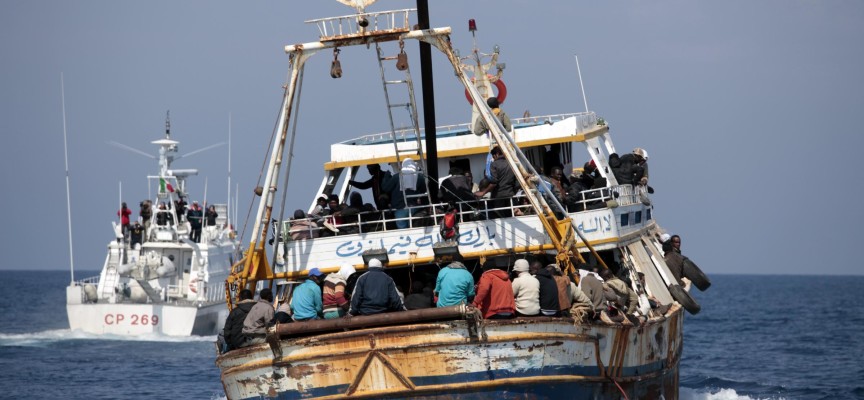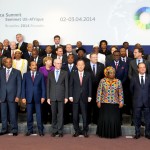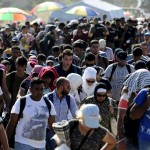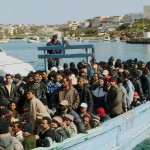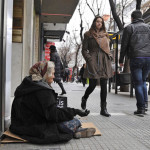“If on the one hand the international community has not done its own part in this regard (…), it is also true that those who hold positions of responsibility should wonder: rather than condemning our young people to play the game of exploiters and traffickers of human beings, is it not better to find ways and strategies to get out of this absurd situation of ‘no peace’ and ‘no war’?”.
These are the hard words, as hard as very likely they had never been, that the Catholic bishops of Eritrea have pronounced, on May 25, in a pastoral letter published on the 23th anniversary of the Country’s independence.
In the bishops’ minds, the tragedy of October 3 last year, off the coast of Lampedusa, which killed over three hundred migrants, most of them Eritreans. No coincidence that the title of their Pastoral Letter, Where is your brother?, takes up the words of Pope Francis during his visit to Lampedusa on July 8, 2013.
But, faced with these words and these facts, what was the reaction of Europe?
Too timid, in recent months, were the words of condemnation against the regime of President Isaias Afewerki, in power since 1993. And also very timid (if not entirely absent) were the demonstrations of solidarity with the survivors of this one and the many other tragedies of the sea. “If our homeland were a space where peace and freedom reign and where there is no unemployment – the bishops write – there would be no reason to choose the path of exile, loneliness, and difficulties of all kinds”.
A run away from a country where family breakdown is caused “by an unpaid military service without time limit, as well as by the detention of many young people in prisons and rehabilitation centres, thus exposing not only their old parents, but whole families to misery and total lack of support”.
Their cry, though, was mostly unheard. An exception was the recent decision of the United Nations Council for Human Rights to instruct a committee of inquiry into the violations enacted in Eritrea. This intervention, however, will be useless without an adequate political support.
To an apparently opposite direction, however, seemed to go the early July visit to Asmara of the Italian Deputy Foreign Minister, Lapo Pistelli, who pronounced words of openness about the Eritrean leadership. “It’s time to start it all over again,” said the Italian Deputy Minister, adding that he was there to “bear witness to the desire to boost bilateral relations and try to facilitate a full reintegration of Eritrea as a responsible actor in the international community and in the fundamental dynamics of regional stabilization”.
No word has been spent on that occasion, at least officially, on the topic of human rights violations. “A very closed system – explained the deputy minister – will not change if you just isolate it. This has been going on already for 20 years. Again, our duty as politicians is not going around on our knees knocking at the door of anyone, but to go and talk and argue our position, and try to change the counterpart’s position”.
Only time will tell how effective this new diplomatic initiative will be, but our fear is that human rights may be sacrificed on the altar of the regional stability of an ever restless Horn of Africa, as well as on the altar of economic interests (Italy remains the second largest trading partner of Eritrea).
Looking at the initiative of the United Nations and to the Italian initiative, one would think the old game of carrot and stick. This strategy can be successful only if it has the virtue of consistency and, above all, if it will be shared by the whole of Europe. Maybe by placing the Eritrean issue high on the agenda of the next High Representative for EU foreign policy.
“The real enemy of peace is injustice; respect for people, their dignity, and their rights is the cornerstone of peace”, the Eritrean Catholic bishops remind us. Europe and the world have the task of not to drop unheeded this cry.
“Se la comunità internazionale non ha ancora fatto la propria parte in proposito (…), ciò non toglie che chi riveste ruoli di responsabilità abbia l’obbligo di chiedere: piuttosto che condannare i nostri giovani al gioco degli sfruttatori e dei trafficanti di esseri umani, non è meglio individuare vie e strategie per uscire da questa assurda situazione di ‘non pace’ e di ‘non guerra’?”.
Sono dure, come forse non lo erano mai state, le parole che i vescovi cattolici dell’Eritrea hanno affidato, il 25 maggio scorso, a una lettera pastorale diffusa in occasione del 23° anniversario dell’indipendenza del Paese.
Nella mente dei vescovi la tragedia avvenuta, il 3 ottobre scorso, al largo delle coste di Lampedusa e costata la vita a oltre trecento migranti, molti dei quali eritrei. Non a caso il titolo della Lettera pastorale, Dov’è tuo fratello?, riprende le parole di Papa Francesco durante la sua visita a Lampedusa l’8 luglio 2013.
Ma, di fronte a queste parole e a questi fatti, qual è stata la reazione dell’Europa?
Troppo timide, nei mesi scorsi, sono state le parole di condanna nei confronti del regime del presidente Isaias Afewerki, al potere dal 1993. Così come tiepide (se non del tutto assenti) sono state le dimostrazioni di solidarietà nei confronti dei sopravvissuti a quella e a molte altre tragedie del mare. “Se la patria fosse uno spazio dove regna la pace e la libertà e dove non manca il lavoro – scrivono i vescovi – non ci sarebbe nessun motivo per scegliere la via dell’esilio, della solitudine e delle difficoltà di ogni genere”.
Una fuga da un Paese dove la disgregazione familiare è causata “dal servizio militare senza limiti di tempo e senza retribuzione, della reclusione di molti giovani nelle prigioni e nei centri di rieducazione, esponendo alla miseria non solo genitori anziani e senza supporto, ma intere famiglie”.
Un grido rimasto per lo più inascoltato. Fa eccezione la recente decisione del Consiglio delle Nazioni Unite per i diritti umani d’incaricare un’apposita commissione d’inchiesta sulle violazioni compiute in Eritrea. Un intervento che sarà però inutile senza un adeguato sostegno politico.
Di segno apparentemente opposto è stata, invece, la visita del viceministro degli Esteri italiano, Lapo Pistelli, ad Asmara, all’inizio di luglio. Da Pistelli sono arrivate parole di apertura nei confronti della leadership Eritrea. “È arrivato il momento di ricominciare”, ha detto il viceministro italiano, aggiungendo di essere lì per “testimoniare la volontà di rilanciare le relazioni bilaterali e provare a favorire un pieno reinserimento dell’Eritrea quale attore responsabile e fondamentale della comunità internazionale nelle dinamiche di stabilizzazione regionale”.
Nessuna parola è stata spesa in quell’occasione, almeno ufficialmente, per le violazioni dei diritti umani. “Un regime molto chiuso – si è difeso il viceministro – non cambierà se tu ti limiti semplicemente a isolarlo. Questo succede già da 20 anni. Quindi, ripeto, la politica ha il dovere non di andare a bussare in ginocchio alla porta di nessuno, ma di andare a parlare e argomentare la propria posizione e cercare di cambiare quella altrui”.
Solo il tempo dirà quale efficacia potrà avere questa nuova iniziativa diplomatica, ma il timore è che i diritti umani possano essere sacrificati sull’altare della stabilità regionale, in un Corno d’Africa quanto mai irrequieto, e degli interessi economici (l’Italia resta il secondo partner commerciale dell’Eritrea).
Guardando all’iniziativa delle Nazioni Unite e a quella italiana verrebbe da pensare al vecchio gioco del bastone e della carota. Una strategia che potrà avere successo solo se avrà la forza della coerenza e, soprattutto, se saprà essere condivisa dall’intera Europa. Magari ponendo la questione Eritrea in cima all’agenda del prossimo Alto rappresentante dell’Ue per la politica estera.
“Il vero nemico della pace è l’ingiustizia; il rispetto delle persone, della loro dignità e dei loro diritti è la pietra angolare della pace”, ci ricordano i vescovi cattolici eritrei. All’Europa e al mondo il compito di non lasciare cadere inascoltato questo grido.
Michele Luppi
www.africaeuropa.it
Latest posts by Michele Luppi (see all)
- How can Europe do that? - 16 aprile 2016
- A raw nerve in european consciousness - 23 luglio 2015
- The cry of the dead of Garissa - 18 aprile 2015

